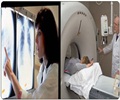Non-small cell lung cancer (NSCLC) is the most common type of lung cancer, affecting the lungs.

Long-Term Survival in Stage 1A NSCLC
The study analyzed outcomes for more than 32,000 stage 1A NSCLC patients using data from the STS General Thoracic Surgery Database (STS GTSD) with long-term follow-up linked to the National Death Index and Centers for Medicare and Medicaid Services database, which provides up to 10 years of survival data.‘New research sheds light on the long-term effects of different #lungcancer surgeries. This could revolutionize how we approach treatment decisions.’





Lobectomy for stage 1A NSCLC offered the highest survival rates, with a 5-year overall survival (OS) of 71.9% and 10-year OS of 44.8%. Segmentectomy, which resulted in a 5-year OS of 69.6% and 10-year OS of 44.2% proved to be a viable alternative. Both lobectomy and segmentectomy demonstrated better outcomes than wedge resection, which had 5-year OS of 66.3% and 10-year OS of 41.4%. This research highlights the profound effect of using real-world data to provide critical insights that complement findings from randomized controlled trials (RCTs). While RCTs suggest an equivalence between lobectomy and sub-lobar resections, this real-world study gives clinicians additional insight. It provides a broader perspective applicable to diverse patient populations and healthcare settings.
“This study reinforces the need for nuanced decision-making, integrating both RCTs and real-world data to deliver the highest quality of care,” said Christopher Seder, MD, a thoracic surgeon at Rush University Medical Center, Chicago. “By analyzing outcomes in a variety of healthcare settings, we can offer informed recommendations, ultimately improving patient outcomes across the board.”
The findings come at a pivotal time when cardiothoracic surgical practices are evolving rapidly, integrating innovative tools and approaches that prioritize patient safety and long-term health. Dr. Seder added, “Using real-world data to complement RCT findings offers surgeons additional context for tailoring treatment strategies.”
The STS GTSD, part of the STS National Database, includes a majority of lung cancer and esophageal cancer surgeries performed in the US. It is a true national benchmark, capturing detailed information on patient characteristics, surgical procedures, and outcomes. This study highlights the value of large-scale, real-world data analysis in informing clinical practice and guiding patient care.
Advertisement















